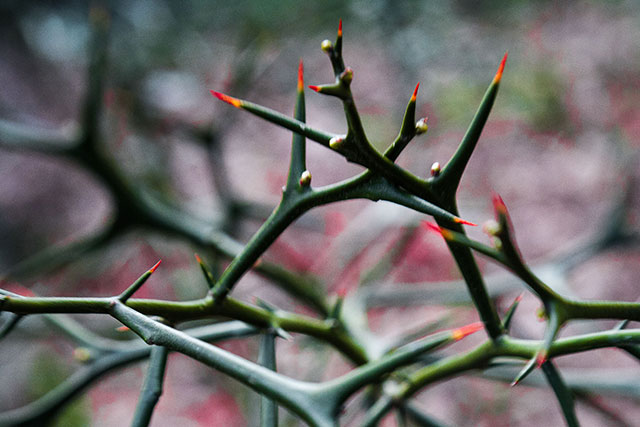This guest post is by Jill Crainshaw.

Ash Wednesday liturgies mark the beginning of Christianity’s yearly Lenten journey by emphasizing penitence, introspection, and human mortality. Last week, many people in Christian communities observed Ash Wednesday by receiving ashes on their foreheads. I participated in three Ash Wednesday liturgies this year. By the end of the day, I found myself focusing on how important it is that the ashy sign of the cross we carry out into the world on our faces after an Ash Wednesday liturgy serves as more than a symbolic and too-soon forgotten reminder of our personal mortality or of our individual spiritual disciplines or relationships to God. Even as we are called in the Ash Wednesday liturgy to remember that we are dust, we are also called to remember that the ashes of human mortality and fasting are imposed on too many people by systemic forces that overwhelm and oppress.
Three remembrances were stirred up for me this week and will trouble my feet as I travel this year’s Lenten road. Trayvon Martin died five years ago, on February 26, 2012. How can I receive a cross-shaped symbol of mortality as a liturgical action without repenting in dust and ashes for my part in constructing a world where too many people still do not count all black lives as beloved? And what about the ashes from those ceremonial flames that have burned at the Standing Rock encampment? How am I, as one who lays my head down to sleep in Winston-Salem, North Carolina, marked by those ashes from across the country, called to respond? Or what about the smoke rising up from refugee campfires in Serbia’s winter wasteland? How does that smoke incense my life and compel me to actions of Gospel justice and care?
Life is fleeting and fragile. And because life is fleeting and fragile, Ash Wednesday and the season of Lent call us to work–by the sweat of our brows–to embody the Gospel’s Easter promises of abundant life for all people. Lent calls us to give up apathetic notions that we are powerless to do anything about injustice and instead to believe with our cinder-smudged heads, hearts, and bodies—with fierce and fearless everyday actions—that God’s promises of justice and life for all people can become realities.
“Remember you are dust,
to dust you shall return.”
We gathered in the sanctuary,
spoke of earthy earthly matters,
went our separate ways,
brows cinder-smudged,
to eat our lunch.
But we who have the choice
dare not race with too-swift feet
from this unforgetting
of human fragility
and culpability,
or rub the mark of mortality
with too much ease
from furrowed foreheads,
not while still-warm ashes
season ancient sacred soil
that burns to resist
the transfusion of death
through its veins,
not while somebody’s son
clutching Skittles and tea remains
planted in fallow ground
waiting for forgetting people
to speak aloud that
black lives matter
and refuse to walk away,
not while some bodies run for
borders they cannot even see
because the other side
of nowhere is safe,
nowhere is home.
“Remember.”
Photo by Jill Crainshaw.
 About Jill Crainshaw
About Jill Crainshaw
Jill Crainshaw is a PCUSA minister and Blackburn Professor of Worship and Liturgical Theology at Wake Forest University School of Divinity. She is the author of several books on worship and ministry.